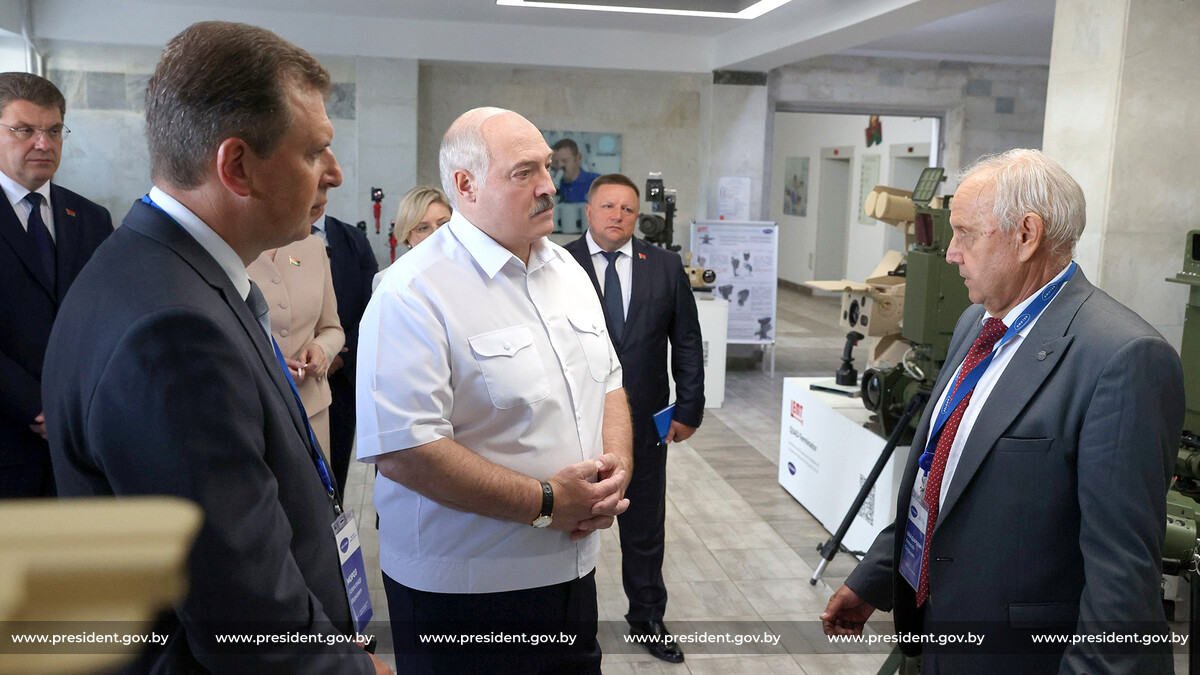Lukashenka has become an obstacle on the Belt and Road between China and Europe
 The situation has not changed
The situation has not changed

Lukašenka has become a problematic partner for China in the OBOR (One Belt, One Road) initiative due to Western sanctions and an almost complete logistics blockade. As a result, he was not invited to participate in the third BRI (Belt and Road Initiative) forum as he had in the previous two forums. The destabilizing actions of the Belarusian regime have made it impossible to turn Belarus into an industrial and logistics hub within the BRI, connecting China with Europe. Consequently, China is now focusing on developing an alternative route that bypasses Russia and Belarus, known as the Trans-Caspian International Transport Corridor.
As expected, Aljaksandr Lukašenka was not included in the guest list for the third high-level international forum, “One Belt, One Road” (OBOR), which took place on October 17-18 in Beijing and brought together leaders from 130 countries. Instead, a delegation from the State Control Committee of Belarus attended secondary events of the forum. They participated in the thematic forum “Clean Silk Road,” where representatives from more than 30 countries and international organizations discussed issues related to combating corruption. During this time, Lukašenka had meetings in Minsk with Iran’s First Vice President, Mohammad Mokhber, who invited him to speak out against the “Zionist genocide in Gaza.” However, the Belarusian politician limited himself to inviting Iran to collaborate in resisting Western actions in the Middle East. The next day, he held talks with the Venezuelan Foreign Minister, Ivan Gil Pinto.
Lukašenka’s absence from the forum was noteworthy, given that the OBOR initiative is closely associated with Chinese President Xi Jinping. Lukašenka had participated in the first two forums in 2017 and 2019. The main reason for his absence this time is likely the limited invitation from the Chinese side.
In previous forums, Lukašenka’s participation and speeches at the High-Level Meeting sessions, as well as his negotiations with President Xi and other world leaders, were part of the program. Failing to receive similar attention this year, Lukašenka decided to remain in Minsk, focusing on deepening integration into the Russian-Iranian anti-Western axis. It is also possible that the Kremlin played a role in shaping Lukašenka’s decision by recommending he deal with more pressing issues. While the Russian leadership publicly supports the OBOR initiative, in reality, Moscow sees it as a competitor to its integration projects, particularly in Central Asia and the South Caucasus.
In recent years, Lukašenka’s actions within Belarus and the region have made him a challenging partner for China. His actions, including the political crisis, the forced landing of a Ryanair plane, the migration crisis, and his support for the Russian invasion of Ukraine, have effectively disrupted the Chinese OBOR initiative in Eastern and Central Europe since 2020. Sanctions and a logistics blockade from Western countries have foiled China’s plans to transform Belarus into a logistics and industrial hub on the China-Europe route. The final straw was Lukašenka’s decision to deploy Russian nuclear weapons in Belarus, despite prior promises not to escalate the regional situation in the context of the conflict in Ukraine. The Kremlin also pledged not to deploy nuclear weapons beyond its national borders.
Given the current stance and position of the Belarusian regime, it is clear that Belarus can no longer effectively participate in the OBOR initiative. This initiative was originally designed to enhance connectivity between the Chinese and European economies. This shift is evident in China’s eight actions to support the high-quality development of the OBOR, as announced by President Xi during the recent forum.
For instance, the first action aims to establish a comprehensive network of OBOR connectivity. China will accelerate the high-quality development of the China-European Express Railway, take part in the construction of the Trans-Caspian International Transport Corridor, host the China-European Express Railway International Cooperation Forum, and collaborate with all parties to create a new logistics corridor across the Asia-Europe continent. This initiative will be supported by direct rail and road transport. China will actively promote the overall development of ports, shipping, and trade along the Silk Road and expedite the construction of new land and sea corridors, as well as the air Silk Road.
As a result, China is now focusing on developing the Trans-Caspian International Transport Corridor, bypassing Russia and Belarus, and passing through Central Asia, Transcaucasia, and Central Europe. However, this does not imply that China is entirely turning away from cooperation with Belarus. Beijing, guided by its strategic culture, may exercise patience and wait for more favorable conditions.
Subscribe to our newsletter




Situation in Belarus
Constitutional referendum: main consequences


 Video
Video
How to count the political prisoners: are the new criteria needed?


 Video
Video
Paternalism In Decline, Belarusian Euroscepticism, And The Influence Of Russia


 Video
Video












